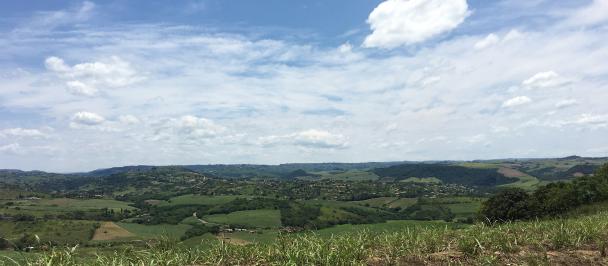Written by Kyra Lunderstedt; James Gambiza & Jean-Marc Mwenge Kahinda
Home garden agroforestry and conservation agriculture promotes food security in rural South Africa
September 17, 2020
Promoting resource efficient growth of agricultural products in community or household gardens, and the maintenance thereof, is important to ensure livelihoods and food security. In rural South Africa, land degradation, poor productivity and water scarcity increase the vulnerability of rural farmers and pastoralists to climate variability and change, particularly drought. Increases in droughts frequency, duration and severity exacerbate such vulnerabilities, highlighting the need for sustainable and context-specific agricultural practices and land management.
In the GEF5 Sustainable Land Management (SLM) Project of the United Nations Development Programme (UNDP), approaches such as home garden agroforestry, conservation agriculture, permaculture and community tower gardens have been adopted. These were identified and applied with the communities to respond to climate change and water scarcity and improve household food security.
Case studies
Home garden agroforestry in the Olifants Catchment, Limpopo
In Sekhukune, part of the savanna biome in northern South Africa, livestock are free roaming causing damage to crops and overgrazing of rangelands. Coupled with a decline in field crop production, home garden agroforestry was identified as an appropriate SLM intervention to control and maintain small-scale food production for subsistence and local markets. Growing food products in yards is a common practice but has not reached its full potential. In Sekhukhune, agroforestry combines planting of fruit trees with vegetable crops, but can include production of browse for livestock. Currently, fruit trees such as oranges, bananas, apples, mango and peaches are grown in yards, but many other indigenous trees can provide both fruit and other products such as fodder and firewood. Vegetables grown include spinach, carrots, tomatoes, maize, sorghum, watermelon and traditional squash. To date, the project with the CSIR has implemented home garden agroforestry in a pilot village called Mpanama which will improve food security in 98 households. It is hoped that this can be out scaled to the rest of the district.
Community tower gardens in Macubeni, Eastern Cape
Vertical gardening is a water and space efficient method of growing vegetables and herbs. In 2018, six tower gardens were erected by the community with the help of the Rhodes University team. Today, these gardens which utilize grey water to save on clean water, are full of vegetables like onions, spinach, beetroot and cabbage. These gardens are used by the community to supplement food requirements and reduce reliance on purchasing food in towns. Other ways of growing vegetables are also being promoted.
Erecting the tower gardens in 2018 (Eastern Cape)
Showcasing the growth of vegetables in the tower gardens in 2019 (Eastern Cape)
Watermelon growing in a home garden in Sekhukune (Limpopo)
Creating the enabling environment
A key component of the GEF5 SLM Project is creating the enabling environment for adoption of SLM best practices. Training and capacity building toward improved knowledge skills is an ongoing practice to ensure sustainability and ownership of SLM interventions.
In Sekhukhune, the CSIR has conducted training in home garden agroforestry in 98 households. In Macubeni, Rhodes University has conducted training in Conservation Agriculture, home gardening and permaculture and demonstrated practically how this can be achieved. Furthermore, training manuals have been developed in Conservation Agriculture and tree planting.
For rural communities, home gardens are a source of nutrition and if planned and maintained properly can provide for families across the seasons. Eating home grown, supporting the community with accessible vegetable gardens and making food products from grown food are all ways to ensure livelihood food security at a local level. Home gardens empower women who grow vegetables for both home consumption and for sale.
These few examples speak to several SDGs (SDG 1: no poverty; SDG 2: zero hunger; SDG 3: good health and well-being; SDG 5: gender equality; SDG 8: decent work and economic growth; SDG 12: responsible consumption and production; SDG 13: climate action, and SDG 15: life on land).

 Locations
Locations







